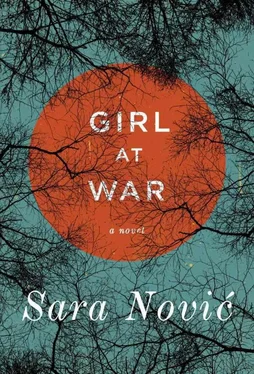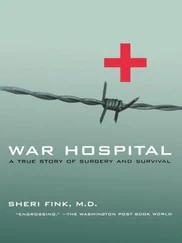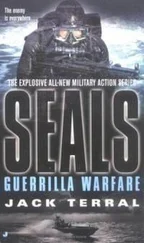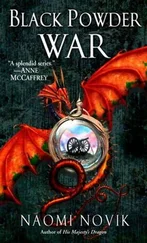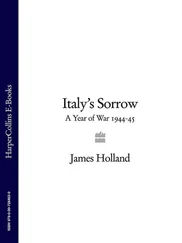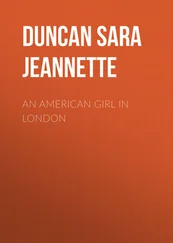Eventually I felt the telltale warmth of a person beside me and realized Sharon had returned and was waiting for me to finish. “Thank you for your time,” I said. The audience clapped more assuredly now; they were either intrigued by what I’d said or glad it was over. Sharon squeezed my shoulder, then transitioned into her segment on Serbian concentration camps. I looked over at the African boys, whose eyes were permanently reddened from too much rubbing or crying or coke, concealing some unidentified tragedy. I returned to my seat, relieved I had gone first. But when they got to the photos of the mass graves, I slipped out a side door and vomited in a potted plant. I didn’t come back for the rest of the presentation, not wanting to see someone I recognized.
I crossed the front grounds of the UN complex — a tundra of concrete and winterized fountains — and passed through the exit gate. Sharon and I were supposed to have lunch after the event, but I figured there was still about an hour left if the other boys were to speak, and I could no longer stomach the sight of the place or the memories it churned within me. I negotiated my way across First Avenue traffic and climbed the steps back toward Tudor Village. I’d have to stay nearby to make a quick return to meet Sharon. More than my debt to her, I was realizing now, the chance to talk to someone who’d known me even briefly in Croatia had been the real reason I’d come. Maybe she could tell me something about what happened to the people I’d left behind.
The late-winter air was still chilly, but at least it eased my nausea. I’d always found solace in Manhattan, felt secure among its buildings and streets crowded with strangers whose lives might be just as jumbled as mine. As far as university went, I’d chosen the city more than the school. Neither of the Americans I’d come to call my parents had gone to college, and I had only vague notions of what I might want to study. So with no other criteria I recalled Zagreb — its alleyways and trams, the autonomy and mobility that came with the compactness of a city — and set my sights on New York. But now, as I walked down Forty-fourth Street, examining this unfamiliar piece of Manhattan, I felt out of place. The street could have belonged to another city entirely, so different in aesthetic and purpose from the West Village, where I spent most of my time: clean sidewalks sparsely populated by people in ties and buffed leather shoes, black cars with drivers and diplomatic license plates idling curbside. I passed a string of UN Program offices and the UNICEF building, names that had meant so much hope to me as a child across the ocean and so little to me now.
I stopped in a bodega to buy a roll of breath mints. While digging around in my jacket for change I saw my phone flashing with a text message from Brian.
Mornin babe. Where’d u go?
I didn’t want to lie, so I wrote nothing and stuffed the phone back in my pocket. Brian and I had been dating for a year, but he didn’t know anything about who I really was. I’d told him, as I had everyone else at college, that I was born in New Jersey.
At first I was confident in the choice to keep my past life a secret. I could experience college and the city without the old sadness in wait at every turn. For a while, it worked. I made a few friends, met Brian, stayed out too late smoking and drinking and dancing, walking home wide-eyed and enchanted by the city lights. Slowly, in a place uncontaminated by the specter of childhood, I was learning to live a normal life. Then, at the start of my third year, the towers had fallen.
I was in an 8:00 A.M. chemistry class making periodic table jokes with my lab partners when a professor from a neighboring classroom appeared in the doorway. She let herself in.
“Hank,” she said, “you’ve gotta see this.” She searched through Dr. Reid’s desk drawers while he looked on, annoyed. She found the remote and aimed it upward with a shaky hand. The television, having been left in video input mode, produced a static growl. She turned to a news channel.
The fire was lurid even through the grain of the old set, startling in both intensity and size, but it was when the cameraman zoomed out that the entire class gasped in recognition. Professor Reid flipped the emergency switch to cut power to the gas line, deactivating our experiments, and we circled around the television.
“You are looking at obviously a very disturbing live shot there,” said the news voice-over. “That is the World Trade Center, and we have unconfirmed reports this morning that a plane has crashed into one of the towers.”
“Oh god, which tower is that?” said a girl in the back of the lab.
“What kind of pilot was flying that low over New York City?” a boy beside me said. “Fucking idiot.”
“My brother works in South Tower,” the girl said.
“What if it wasn’t an accident?” I said.
“What do you mean not an accident?” said the boy. “What the fuck was it then?”
Our professor punched the keypad of his cellphone, but whomever he called didn’t pick up, and he snapped the phone shut.
“I want you to go back to the dorms,” he said. “If you live off campus find someone you can sit with for a while.” We collected our books, except for the ashen girl, who stayed below the television.
“It was the North Tower,” I said, pointing to the ticker text. “I’m sure your brother’s fine.”
“Guys,” Dr. Reid called as we reached the door. He didn’t look up; he was pressing keys on his phone again. “Take the stairs.”
Outside I tried to get a look downtown, but I couldn’t see anything. I wondered where Brian was, and felt around in my backpack for my cellphone. My American parents had given it to me for my birthday the month before, but I still wasn’t used to carrying it around and was constantly misplacing it. When I found it the screen revealed several missed calls. I tried to call Brian, then home, but was met each time with a busy signal I’d never heard before, the sound of millions of people simultaneously on the phone.
Not knowing what else to do, I ran back to my dorm and found Brian pacing the front hall. I was relieved and a little shocked to find him whole and fine and right in front of me. Instinctively, I realized, I’d been expecting the worst.
“You’re okay,” I said, trying not to sound too surprised.
Brian kissed me on the forehead and we went upstairs, where my floor mates were already crowded in the common room. We sat staring at the television, watched the strike on the second tower and its collapse a few hours later. The ticker had changed from “disaster” to “attack.” Eventually I got through to my family, an inexplicably whispered call, as if we were afraid speaking too loudly might send something else toppling. I was fine, I said over and over, trying to placate the woman I’d come to call my mother. And I was fine, I assured myself when I hung up. After all, nothing had happened to me.
Brian wanted to stay, but I feigned a research paper and a string of apologies, and reluctantly he returned to his own dorm. I wanted to be alone. Even after everyone had gone to bed I stayed up watching the towers that were no longer towers, what everyone was now calling Ground Zero. A desire to be close to the wreckage overwhelmed me. I went out and walked south until I got to the fire engine roadblocks, stood there for a while, awash in emergency light. The air was still thick with the smell of burning plastic and molten steel, dry, itchy breaths filled with plaster particulate.
When I returned to the common room the news was replaying the day’s footage — jerky shots of asphalt concealed by a layer of ashes and dead people’s paperwork, documents that had been considered important, maybe even classified, just that morning. The coverage returned to real time, a live helicopter shot of the skyline. A cloud of smoke lingered over the spot, tinged orange from the reflection of the city’s lights. I tried again to quell the solipsistic thought I’d been evading all day — that trouble would follow me wherever I went.
Читать дальше
